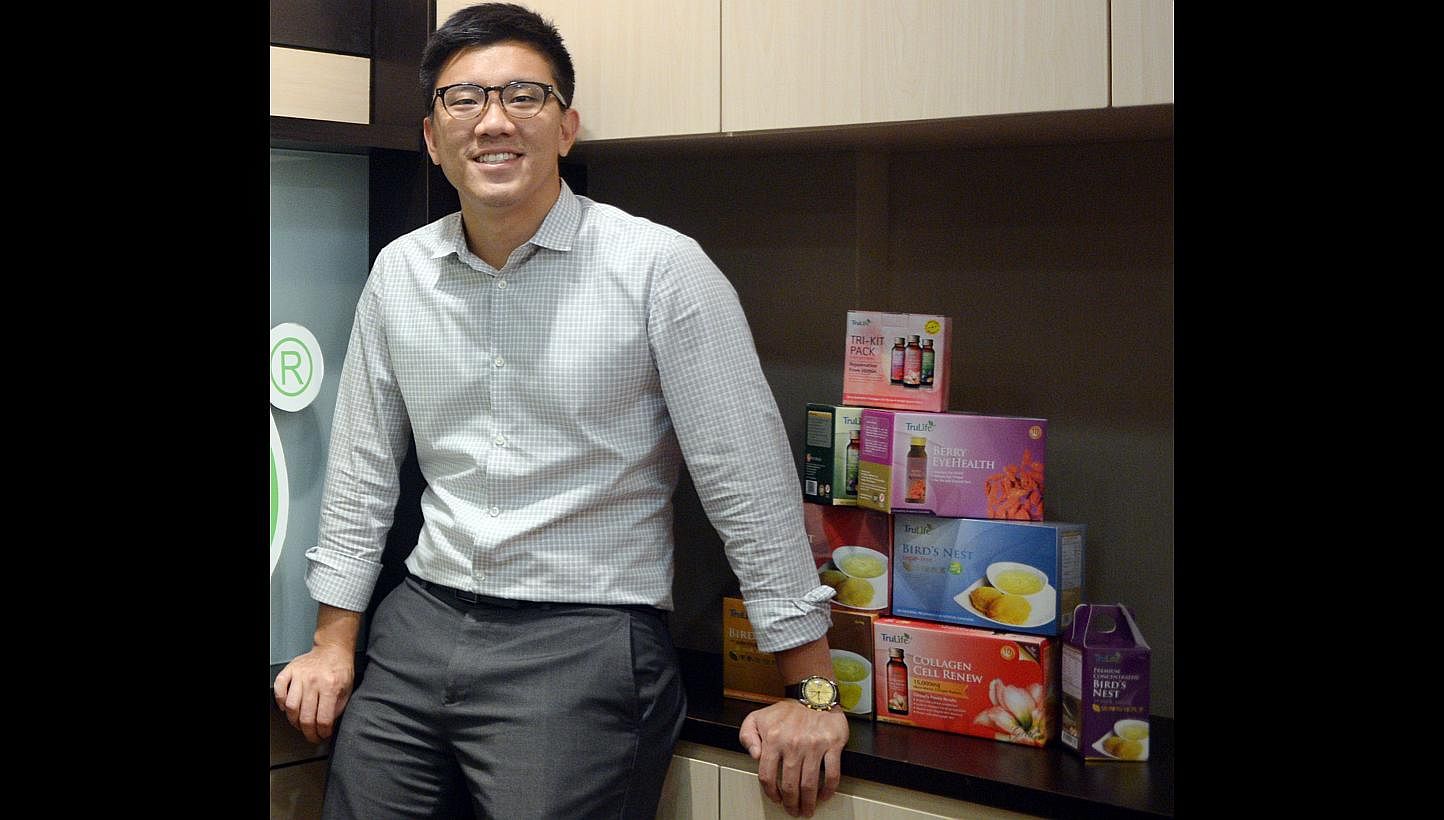From being a high-flying management consultant to manufacturing traditional Chinese medicine
Sign up now: Get ST's newsletters delivered to your inbox

At one point in his life, 30-year-old Dylan Hu was a high-flying management consultant in a top international consulting firm after graduating in 2009 from the Marshall School of Business at the University of Southern California.
That jetset lifestyle took a 180-degree turn in 2010 when he joined his family's traditional Chinese medicine (TCM) manufacturing business, Poli Medical.
It was something he had always planned on doing, in contrast to his two older sisters who have no plans to join the business. Mr Hu declined to reveal their professions.
Started by his grandfather as a 300 sq ft medical hall in Geylang in the 1950s, the company was officially registered as Poli Medical by Mr Hu's father, Mr Foo Wen Chuen, in 1971.
Straight from his cushy office job, the bachelor started work at Poli Medical at the bottom. For a year, his role in the company involved sweeping the factory floors, unloading cargo and learning to operate heavy-duty machinery.
"Calling it a culture shock would be an understatement," Mr Hu jokes. "When I joined, my Mandarin was terrible and even basic communication with older staff was difficult. But to be honest, I loved the challenge. I needed to learn the ropes and getting involved from the ground up was the only way."
It took a firm understanding of the company's three brands - Jiyang, the flagship brand of tonics; Golden Sun, the capsule-form of TCM products; and Imperial, products for external application - before he was finally allowed to get more involved in the strategic planning of the business.
Still, he was not content with just maintaining the status quo - he was on a quest to banish the stereotypes the younger generation holds of TCM.
"Most people my age shun TCM for being completely unpalatable - in fact most of us just pinch our noses and drink tonics because our parents tell us to," he says. "But because I know how beneficial TCM can be, I made it my goal to change that perception."
It is a vision he achieved in 2011, with a new brand called TruLife - a range of detox products aimed at time-strapped young adults.
Keeping his younger consumers in mind, he started out by improving the taste profile - working with the Food Innovation Resource Centre at Singapore Polytechnic to develop cooking methods that improved the taste, look and smell of the products.
Once he perfected the recipes, he turned his eye to aesthetics - ditching the traditional, old-school look of TCM packaging for sleek bottles, packaged in convenient, ready-to-go sizes. He also kept all instructions and ingredient information in English, making them readily accessible to younger consumers who cannot read Chinese.
And it is evident that Mr Hu's hard work has paid off. TruLife is now stocked at pharmacies such as Guardian and Watsons and, after only four years, contributes to more than a third of Poli Medical's overall revenue.
Company sales have also grown approximately 10 per cent year on year since Mr Hu came on board.
Says his father, Mr Foo, who is chief executive of Poli Medical: "Listening to Dylan's modern ideas helped take the business in a new direction. It's something I wouldn't have been able to do without him on board helping to implement changes."
And it seems like it is a case of like father, like son. When asked about his proudest achievement in the past five years, Mr Hu unwittingly echoes his dad's sentiments.
"I've put systems into place and have seen tangible results because of the changes I've helped implement... that's been the best reward," he says.
"Well, that and the fact that my Mandarin has improved 10-fold - I can now even recite proverbs in Chinese!"


